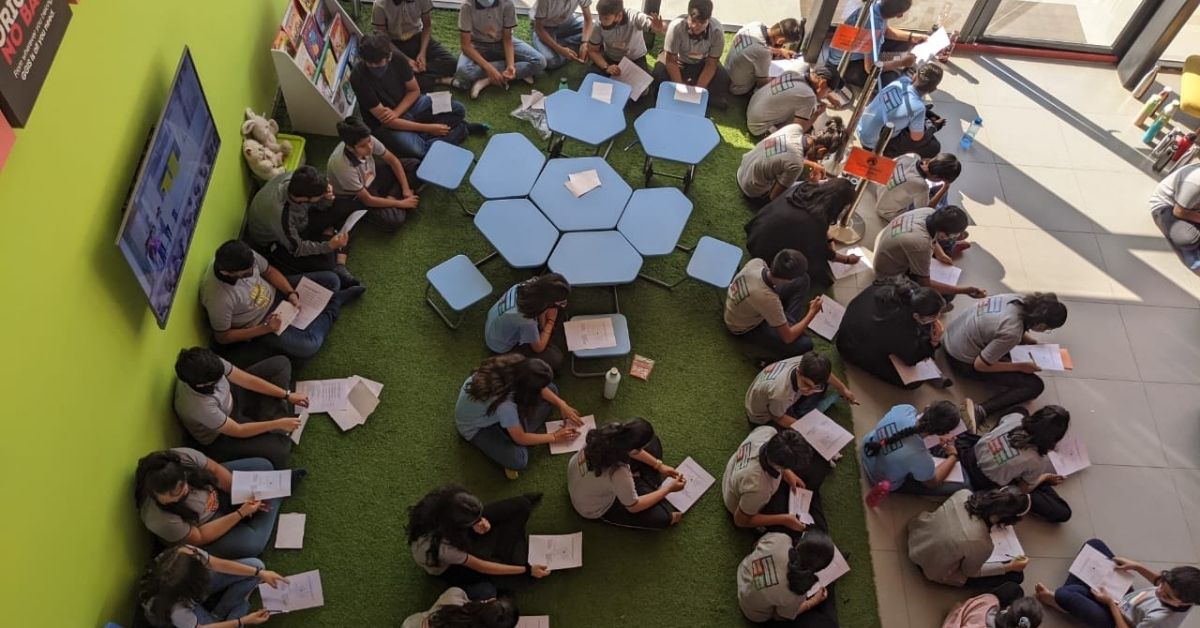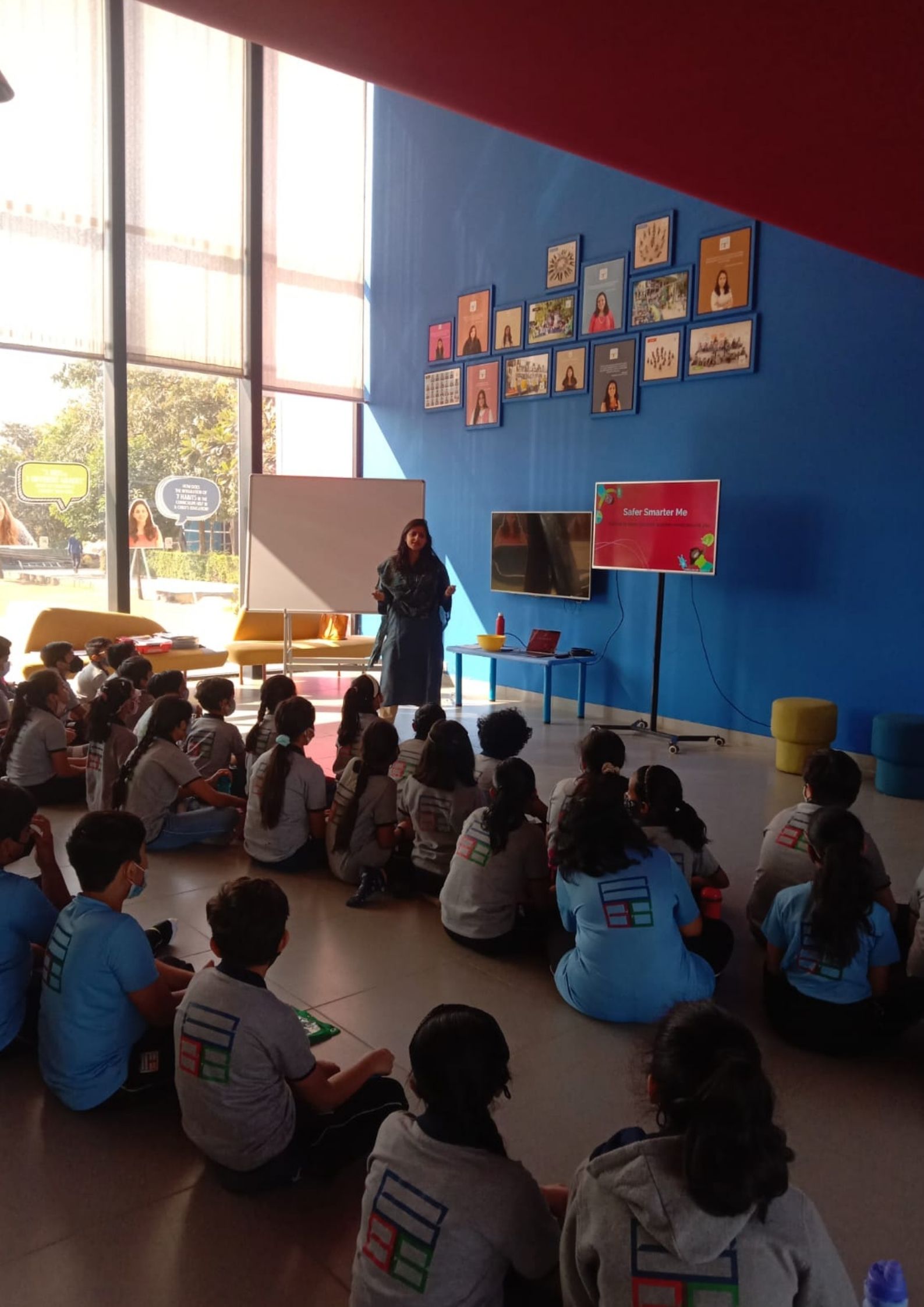Trigger Warning: Child Sexual Abuse “It takes a village to prevent child sexual abuse,” says Anuja Amin, a 37-year-old who founded Circles of Safety in 2015. This venture, she says,
Trigger Warning: Child Sexual Abuse
“It takes a village to prevent child sexual abuse,” says Anuja Amin, a 37-year-old who founded Circles of Safety in 2015. This venture, she says, is an attempt to sensitise the community and to be the voice for children who are sexually abused.
“I have heard it all — uncles will be uncles, what will you do about it? and others telling me that this is a part of growing up,” says Anuja, sharing that her intent to start the platform stemmed from personal experiences.
“When I was 5 years old, I was sexually abused by a male domestic worker in the sanctity of my own home. As I grew up, the perpetrators changed faces, but sporadic episodes continued well into my teenage years,” she says.
Despite these nightmarish experiences, Anuja says she couldn’t get herself to tell anyone about it, as she was not equipped with the words or the emotional vocabulary to describe what had happened to her.
Cut to 2015, when the trauma and angst fuelled in her a desire to change the narrative. She started Circles of Safety after quitting her job in the Netherlands and returning to India. “If shame, guilt and denial are the ingredients that help the epidemic grow, then how could I stay silent?” she wonders.
Through the platform, she conducts workshops in schools, where she helps parents and staff embrace personal safety discussions rather than wish them away. “The more I interacted with schools and parents,” she says, “the more I realised that early intervention is the need of the hour. This sexuality education will raise an informed generation who will make safe and responsible choices.”
 Workshops conducted by Circles of Safety
Workshops conducted by Circles of Safety
The team has made a dent in regressive attitudes that people have towards sexual abuse in children by conducting workshops pan-India, including Lucknow, Bengaluru, Surat, Mumbai, and Chennai.
Child Abuse: Creating inclusive environments for children
In India, the societal fabric is frayed with instances of child sexual abuse, and little to no action is taken. A study conducted by the government in 2007 suggests that of the 53 per cent children who are sexually abused before their 18th birthday, only 3 per cent actually disclose this abuse to a parent or adult.
Once Anuja saw the figures, there was no going back for her. She was intent on change.
Along with her team, she created two games for children of ages 5?18 as part of the National India Toy Fair. The goal of these was for adults and children to communicate key safety messages and remain approachable. Elaborating on one of these games, which is created for kids aged 4?8, Anuja says it comprises activity sheets and worksheets to help children develop gross motor skills. “It helps them identify their grown-up safety network,” she says, adding that this is the age when parents want their children to learn by doing. This is just what the game helps them achieve. As part of the activity, there is also tic-tac-toe, centred around the child distinguishing between safe and unsafe conversations.
At the heart of Circles of Safety, is the core belief that sexual development in children does not only include physical changes, but also sexual knowledge, beliefs, and behaviours. “Here’s a wake-up call for you — a child’s sexual development is not on pause till the teenage hormones hit!” says Anuja, adding that surrounding the child with positive messages on sexuality forms the foundation for their sense of self and their relationships.
 Circles of Safety has a curriculum designed for comprehensive sexuality education
Circles of Safety has a curriculum designed for comprehensive sexuality education
In 2019, the team also ventured into a comprehensive sexuality education curriculum starting from Class 1 to 12 based on international guidelines.
This curriculum is a layered one, exploring not one aspect, but several. It starts out with teachers using detailed lesson plans to educate children about sexuality. The task does not end in the four walls of the classroom, but continues at home too, wherein parents and caregivers are then asked to help the child complete assigned activities.
“The first aspect to take into consideration is the grade that the teacher is catering to,” she says. “Often, people assume that certain topics are centric to certain grades, but this isn’t completely true.”
A post shared by Anuja Amin | Body Safety | Comprehensive Sex Ed (@circles_of_safety)
There are many topics under sexuality education such as reproductive health, abuse and consent, physiological changes, etc. Each topic is made age-appropriate for the particular grade. For example, consider the topic of healthy relations. In Classes 1 and 2, the curriculum involves the teacher asking children how they choose their friends, why they are friends with certain people, what makes them like people, etc. In the higher classes, this would be addressed in a more mature way.
The same goes for human development. In lower grades, they teach children about why living things produce and why non-living things do not have babies. The same topic in a higher grade would involve them explaining the process of reproduction in detail.
“Teachers get detailed lesson plans for each topic and grade,” she says. These lesson plans include a game, homework and a topic for discussion that they need to follow up with their parents. This ensures the consistency of messages on sexuality from the major stakeholders.
Through her experience, Anuja has discovered that topics of gender identity are crucial and there is a lot more awareness needed. “Children are so curious about LGBTQIA, the difference between gender and sex, etc. The problem is the lag between what they are ready to accept and what their parents think they are ‘old enough’ to know,” she says. She emphasises on the need to build inclusive classrooms where heteronormativity is not taken for granted.
Jyoti Shukla, a parent, is in awe of the programme. “It is important to teach children about these things. The programme covers many topics, one of them being the menstrual cycle. My daughter is 10 years old and naturally has questions about this. Thanks to the programme, she now feels more prepared. Kids these days have so many questions about the world around them, and Circles of Safety answers these. It prepares children for life.”
With an ambitious goal of arming every school with the curriculum, Anuja says the difference between theirs and others is the personal approach they take. “We handhold each school, thus ensuring the programme has been implemented in a sustainable way.”
The platform is also part of a fellowship with YP foundation — a youth-led organisation — and they are attempting to make the curriculum applicable across various sections of society.
“The goal is to approach governments and empower children across India,” she adds, quoting that their various workshops have impacted over 9,000 parents and educators and 4,000 children.
“I seek to cultivate a change in culture,” says Anuja, “in which parents are no longer uncomfortable or afraid when discussing sexuality and related topics. I want for them to acknowledge that no topic is too taboo or cumbersome when the safety of our children is at stake.”


